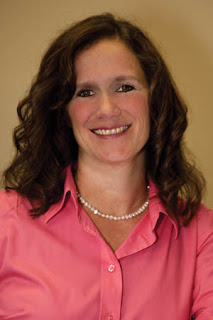
Today, we are talking with Anton Yefanov, Deputy Head of the Kherson City Military Administration and formerly the Director of the Center for Social Services of the city of Kherson, about the current situation in the city, the challenges facing local residents, and the prospects for the city’s recovery after the war.
Anton Yefanov is responsible for the social and humanitarian direction in the Kherson City Military Administration. Therefore, we first asked what the current situation is in this direction.
“The situation is consistently difficult, as doctors say. First of all, the security situation is affecting us, which, unfortunately, is not changing, and in some places, on the contrary, is worsening. If earlier, we could still overcome the consequences of shelling or evacuation to some areas, we cannot be there today. But, we continue to support the population humanitarianly and materially. We provide primary assistance to the victims, particularly those with injured or lost loved ones. We continue to work on increasing social payments for certain population categories,” says Anton Yefanov.
The main challenges facing the social sector in Kherson today are the shortage of personnel, difficulties in financing social programs, and the need to adapt to the rapidly changing security situation. Many specialists go to the front, and those who stay often burn out. Therefore, the interaction of the authorities with the public sector, according to Anton Yefanov, is significant: “We have a powerful group of organizations that are actively working on the ground and providing assistance. This increases the effectiveness of our work. Their experience is important to us, which we can then apply in our work.”
Anton Yefanov agrees that not everything goes well for the local authorities and that residents often criticize them, but, nevertheless, the local authorities do a great job that you can’t always see. These include negotiations, consultations with donors, and organizational work on the ground, which allows us to improve the situation in the social and humanitarian sphere.
The issue of humanitarian aid is still acute for Kherson and the region. With a population of 80 thousand in the Kherson community, 60 thousand food kits are distributed monthly. Drinking water delivery around the city continues even though this program should be completed in 2023. Currently, 75,000 liters of water are delivered in Kherson every week. Humanitarian aid faces challenges such as logistics and coordination between different aid providers. There are often problems with access to the affected areas.
“International organizations play a critically important role in the reconstruction of Kherson. They provide humanitarian aid and funding for the restoration of infrastructure. This allows us to focus on those aspects that require urgent attention,” says Anton Yefanov.
One reason the authorities are criticized is the communication gaps, which increase the level of mistrust. We asked Anton Yefanov how the local authorities plan to improve communication with residents: “Communication with residents is one of the priorities of our work. We actively use social networks and other channels to inform people about our activities. Residents must know the population's requests, available services, and where to get help. In addition, we plan to hold regular meetings with the community to discuss their needs and problems. This will allow us to be more sensitive to the requests of the population and respond to their needs faster.”
The prospects for the recovery of Kherson depend on many factors, including stability in the region and support from international partners. “I am sure that over time, the city will recover. We must work together, including the state, international organizations, and the local community. We have the potential to develop small and medium-sized businesses, which can become the basis for economic recovery. If we can create attractive conditions for investors, this will contribute to the return of people and the restoration of the economy. To do this, everyone must take responsibility and actively participate in restoring their city. I hope we will see positive changes over time and that Kherson will become a comfortable and safe place to live. We must work together for a common goal and not lose hope for a better future,” adds Anton Yefanov.





